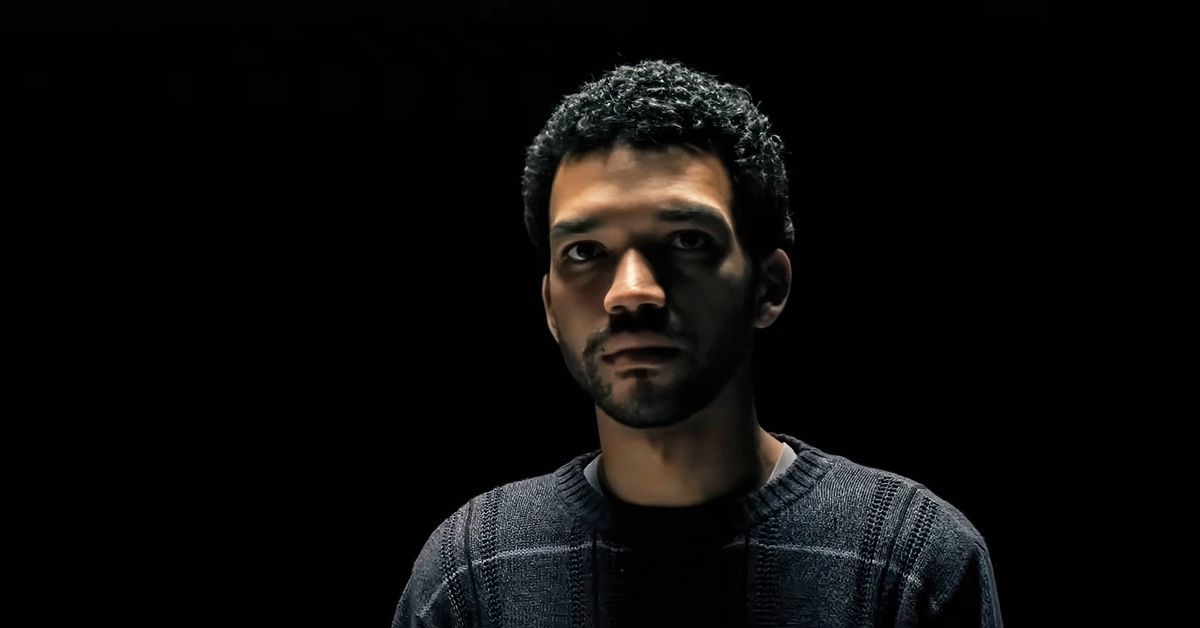Look around on social media, and you’ll find a lot of wince-inducing responses to the title of Kobi Libii’s debut feature, The American Society of Magical Negroes, ranging from people offended that it exists to people expressing ghoulish delight that they have an excuse to use the word “Negro” in public. Libii’s film is a darkly comedic satire building off a common trope first popularized as a term by director Spike Lee in 2001 — the Black movie characters, particularly in ’90s movies, who only exist to support white characters and further their character arcs. In Libii’s story, that Black support network is a codified secret society of Black men and women with actual magical powers, which they use to comfort and aid white people so they’ll be less brittle, tense, and inherently dangerous to people of color.
The concept is confrontational, especially since the society firmly believes Black people should (in keeping with the trope) bury their own needs and desires in order to more effectively cater to white people. And the title is equally confrontational — by design. Critics and scholars writing about the trope often bowdlerize it to “magical Black character” or other softened versions of the term — even in the trailer, protagonist Aren (Dungeons & Dragons: Honor Among Thieves’ Justice Smith) awkwardly suggests that the society should find a more appropriate, modern name.
Libii told Polygon ahead of the film’s release that he felt it was important to name the most recognizable and direct version of the trope — and that the discomfort he’s seen around it from white people in particular might actually be instructive to them.
“For me, it’s partially about making the film recognizable as a response to the trope, as opposed to just a society of magical Black people that do an insane thing,” he said. “It’s downstream of this racist trope, not downstream of just me wanting to see Black people in this situation.”
Libii says that since the movie’s world premiere at the 2024 Sundance Film Festival, he’s seen a “very common white reaction to the title” that he finds intriguing.
“White audience members are saying, ‘Well, am I allowed to say it? How am I supposed to say it?’ and expressing their discomfort at navigating the title,” he says. “As a satirist, I’m very interested in that, because it’s a film about, among other things, that discrepancy between white and Black comfort. […] That real discomfort with their own discomfort — their immediate centering of their own white discomfort in this personal film about a Black experience — I find that knee-jerk response really interesting.”
Libii has seen people online worrying about how to ask for a ticket to the film at the box office, and he finds that particularly amusing: “I promise you, if you don’t want to say the word, you can figure out a way to get a ticket to the movie without saying it. I find this sort of hand-wringing about it a little disingenuous, frankly. When was the last time you actually said the name of a movie to get a ticket? You’ll be fine. You’ll sort it out. You’re clever.”
:no_upscale()/cdn.vox-cdn.com/uploads/chorus_asset/file/25350428/MCDAMSO_UC005.jpg)
Image: Focus Features/Everett Collection
He also feels that people feeling squeamish about the title might be getting a small taste of what the Black characters in the movie are feeling, as they worry about what white people might think about them, and what danger that response might put them in. “It’s like that phrase: ‘If all you’ve known is privilege, then inconvenience feels like oppression,’” he says. “It’s just double consciousness, right? Constantly moving through the world, I have to think about two audiences. I have to think about how my actions would ring out in a vacuum in the Black community, and with my peers and friends and family. And then, Oh, wait, how will they be perceived by this white person who has power in this situation? I’m constantly doing that double work.
“And I think for some white audiences, sincerely, in navigating a title like this, it’s the first time they’ve ever had to think about two audiences at the same time: Well, I might be comfortable saying it, but what’s the Black person over here going to think? And that double consciousness, that work of thinking for two audiences, is work we’re constantly doing. So that’s all to say that again, as a satirist, I find that the white discomfort around the title is part of the work the movie is doing. I’m endlessly interested in that reaction.”
The American Society of Magical Negroes debuts in theaters on March 22.

